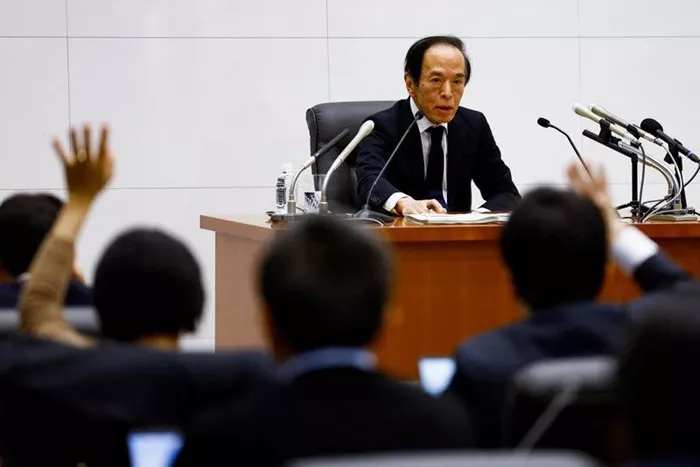The United States has accused several countries, including Japan, of currency manipulation to boost imports. This issue has become a part of ongoing trade talks, with Japan’s weakening yen playing a role. Japan’s core inflation rose to 2.9%, which led Bank of Japan (BOJ) Governor Ueda to signal that interest rates may increase. The Nikkei 225 saw its best week in three months, rising 3.41%, as fears over trade tariffs eased. Japan’s Finance Minister Kato denied any involvement in weakening the yen, stating that Japan does not manipulate its currency.
BOJ’s Rate Decisions
At a recent parliamentary meeting, BOJ Governor Ueda explained that the central bank will continue to pursue policies aimed at reaching its 2% inflation target. The market expects that the upcoming BOJ policy meeting, scheduled for April 30-May 1, will keep interest rates unchanged at 0.5%.
Japan’s inflation data showed mixed results for March. Overall inflation slowed slightly to 3.6%, down from 3.7% the previous month. However, core inflation rose to 2.9% from 2.7% in February. This core inflation figure is important because it closely aligns with the BOJ’s preferred measure, the Core CPI.
The next update on Core CPI will be released on April 22, just days before the BOJ’s policy meeting. It could lead to unexpected developments.
Currency Manipulation Denied
Finance Minister Katsunobu Kato also spoke in parliament, rejecting claims that Japan is deliberately weakening the yen. His comments came after the US accused Japan of currency manipulation.
Kato emphasized, “Japan does not manipulate the currency market to weaken the yen, as shown by our recent actions, including buying yen to stabilize its value.”
Kato is set to visit Washington next week for the G20 finance ministers’ meeting and discussions with the IMF. Analysts expect him to hold bilateral talks with US Treasury Secretary Bessent, likely focusing on issues related to trade tariffs and currency concerns.
Bessent has expressed interest in discussing trade tariffs and non-tariff barriers with Kato, which may include topics related to currency manipulation. Kato acknowledged that the US plans to discuss exchange rate concerns but did not comment on specific details.
Market Impact
The Nikkei 225 index, a key benchmark for Japan’s stock market, experienced a 3.41% rise this week as trade tensions eased. The index’s rally on Friday added to its weekly gains, following news that tariff-related fears were subsiding and trade negotiations might reach a positive conclusion.
Related Topics:
Market Sentiment Improves Amid Focus on ECB
Bank of Canada Holds Rates Amid Inflation and Trade Tensions

